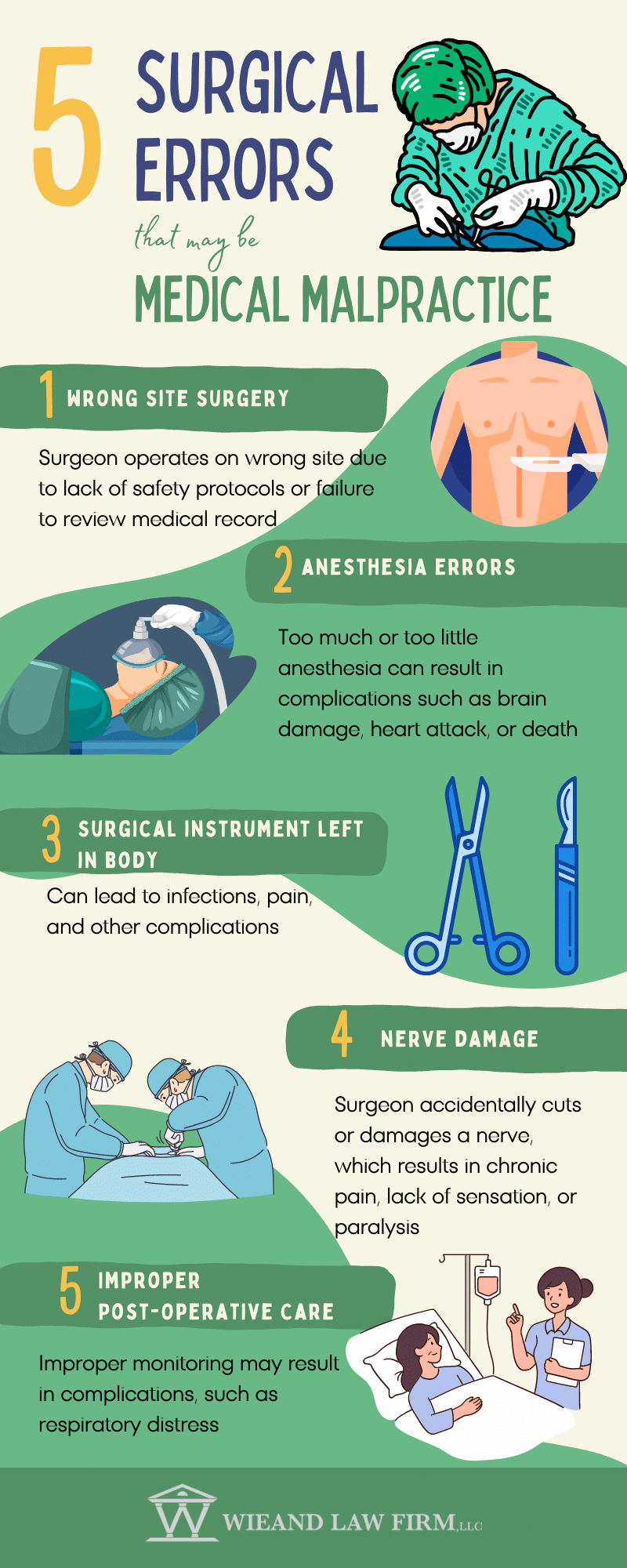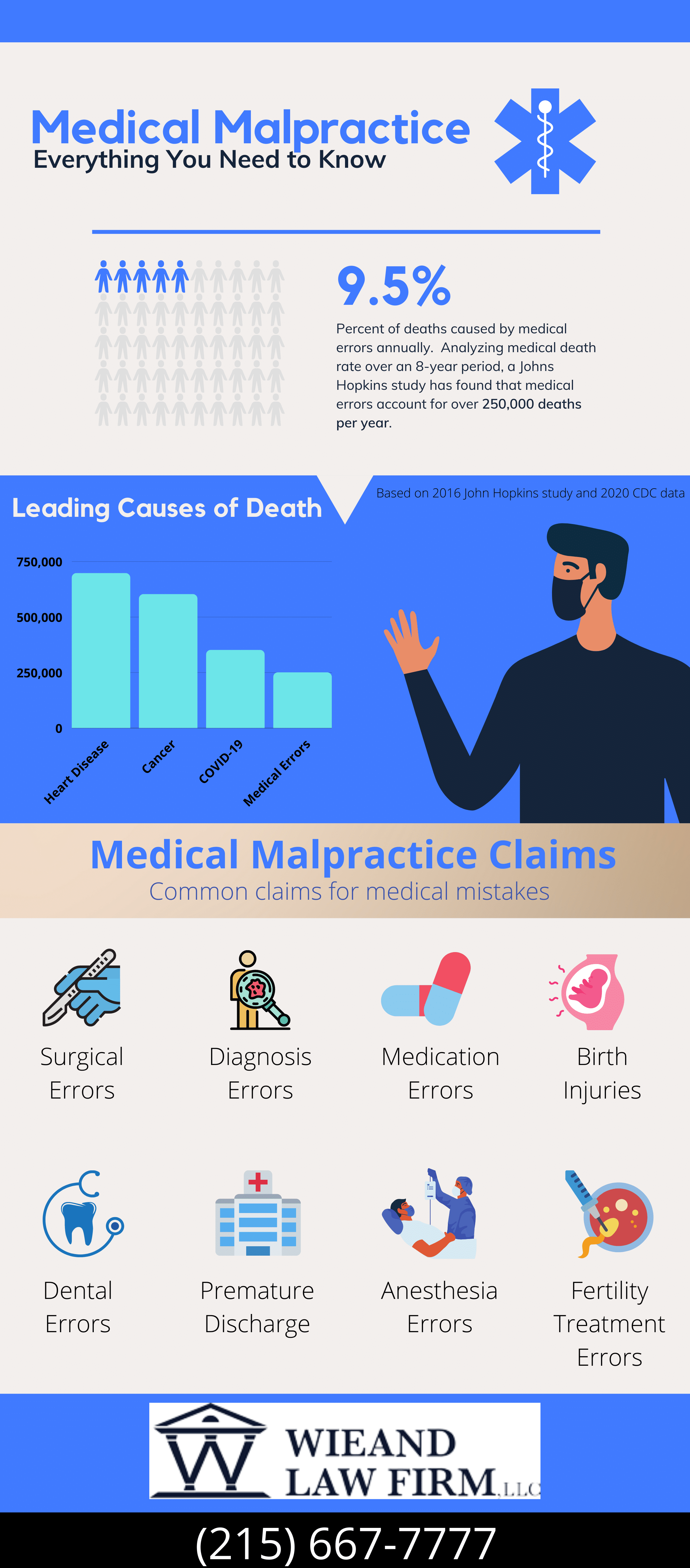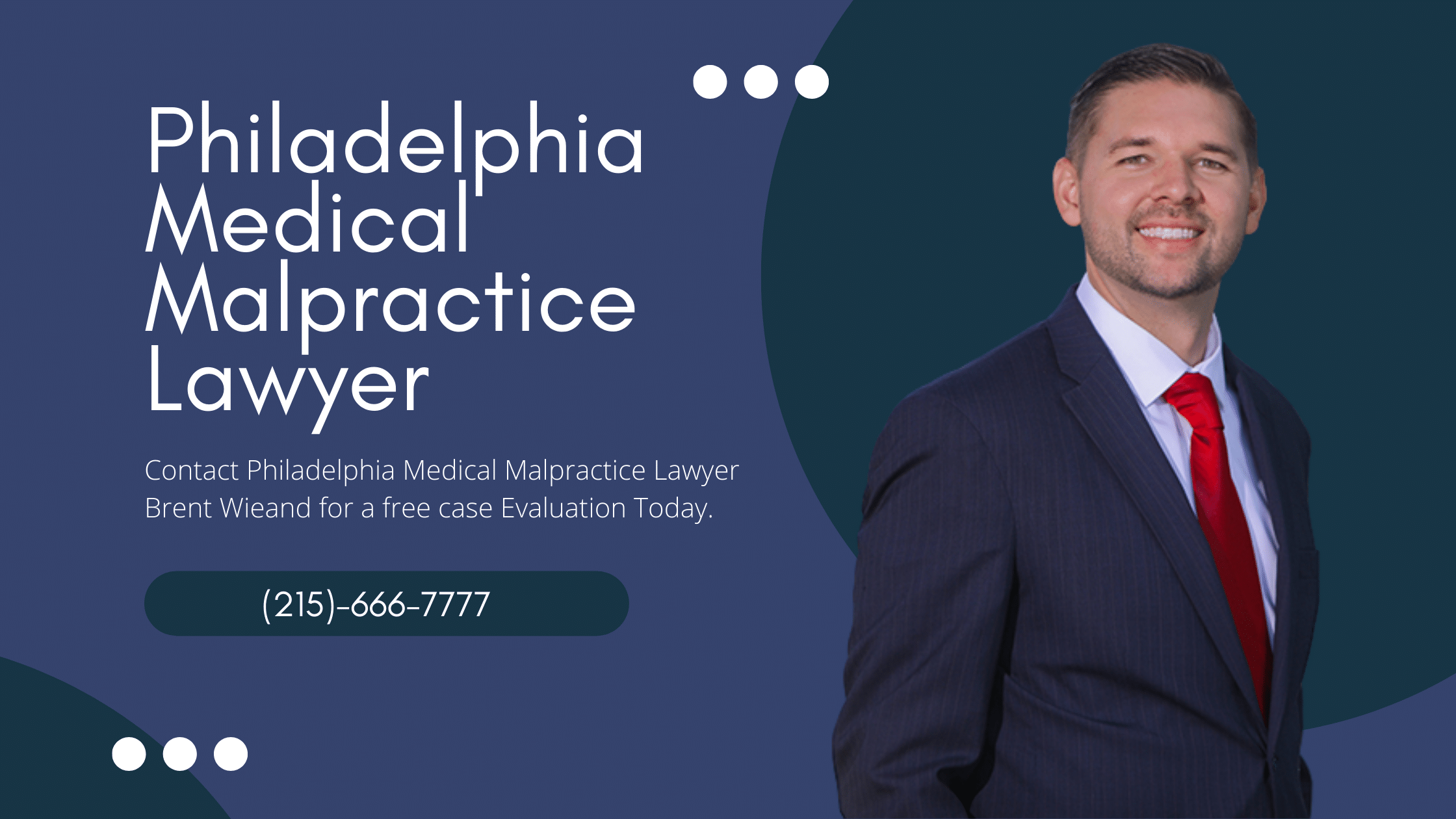 Surgery is a critical aspect of healthcare and can save many lives. However, surgical errors are not uncommon and can result in serious injuries or even death. According to a study published in the Journal of the American Medical Association (JAMA), surgical errors account for approximately 20% of medical malpractice claims. This blog will discuss some common types of surgical errors that can result in medical malpractice claims and actions a Philadelphia medical malpractice lawyer recommends you take if you believe that you or a loved one has been a victim of a surgical error.
Surgery is a critical aspect of healthcare and can save many lives. However, surgical errors are not uncommon and can result in serious injuries or even death. According to a study published in the Journal of the American Medical Association (JAMA), surgical errors account for approximately 20% of medical malpractice claims. This blog will discuss some common types of surgical errors that can result in medical malpractice claims and actions a Philadelphia medical malpractice lawyer recommends you take if you believe that you or a loved one has been a victim of a surgical error.
Common surgical errors seen by the Weand Law Firm as the basis of a malpractice claim include:
One of the most alarming surgical errors is when a surgeon operates on the wrong site of the body. This type of error can occur when the surgeon is not properly trained, does not follow proper safety protocols, or when the patient’s medical records are not accurately reviewed. For example, a surgeon may amputate the wrong limb or perform a procedure on the wrong organ. The consequences of this type of error can be devastating and life-altering for the patient.
Anesthesia errors can occur when the anesthesiologist administers too much or too little anesthesia. This can lead to serious complications, such as brain damage, heart attack, or even death. Anesthesia errors can also occur when the anesthesiologist fails to properly monitor the patient during the surgery. For example, if the anesthesiologist fails to notice a drop in the patient’s oxygen levels, the patient may suffer brain damage or other serious injuries.
Infections are a common risk associated with any type of surgery. However, infections can also occur because of surgical errors, such as when surgical instruments are not properly sterilized or when the surgical team fails to follow proper sanitation procedures. Infections can be life-threatening, and patients may require additional surgeries or extended hospital stays to treat the infection.
Nerve damage can occur during surgery if the surgical team accidentally cuts or damages a nerve. This can result in chronic pain, loss of sensation, or even paralysis. For example, if a surgeon accidentally cuts a nerve during gallbladder removal surgery, the patient may suffer from chronic pain or loss of sensation in the affected area.
Leaving surgical instruments in the body after surgery is a serious surgical error that can lead to infections, pain, and other complications. This type of error can occur if the surgical team fails to properly count the instruments before and after the surgery, or if a surgical instrument breaks during the procedure and a piece is left behind. An example of leaving surgical instruments in the body is when a surgeon accidentally leaves a sponge or a surgical tool inside the patient’s body after surgery.
Proper postoperative care is critical for a patient’s recovery. However, when healthcare providers fail to provide proper postoperative care, patients can experience complications or even death. For example, if a patient is not properly monitored after surgery, they may experience respiratory distress or other complications that could have been prevented with proper care. In cases that improper monitoring results in death, a Philadelphia personal injury attorney may be able to file a wrongful death claim.
 Steps to Take If You Believe a Surgical Error Occurred
Steps to Take If You Believe a Surgical Error OccurredIf you believe that you have been a victim of surgical malpractice, there are several steps you can take to protect your rights and ensure that you receive the compensation you deserve.
The first step is to contact an experienced Philadelphia medical malpractice lawyer at the Wieand Law Firm. One of our experienced medical malpractice attorneys can review your case, investigate the incident, and help you determine whether you have a valid claim. Our attorneys take the time to help you understand your rights and guide you through the legal process.
It is important to obtain copies of your medical records as soon as possible. Medical records contain important information about your treatment, including any surgical procedures that were performed. Your attorney will need these records to evaluate your case and determine whether medical malpractice occurred.
If you have suffered injuries as a result of a surgical error, it is important to document your injuries. Take photographs of any visible injuries, such as incisions or bruises. Keep a record of any symptoms you are experiencing, such as pain, discomfort, or loss of sensation. This information will help your Philadelphia medical malpractice lawyer build a strong case on your behalf.
It is important to follow medical advice after a surgical error because your health and well-being may depend on it. Surgical errors can have serious consequences, such as infections, bleeding, or damage to internal organs. Following medical advice can help prevent these complications and ensure that you receive the appropriate treatment.
Additionally, following medical advice can help you recover more quickly and effectively. Your healthcare provider may recommend medications, physical therapy, or other treatments to help you manage pain, heal properly, and regain function. Failure to follow this advice may lead to delays in healing or even further complications.
Medical experts can provide valuable insight into your case. A Philadelphia medical malpractice lawyer at the Wieand Law Firm can connect your case with medical experts to review and provide expert opinions.
 Proving a Medical Malpractice Claim for Surgical Errors
Proving a Medical Malpractice Claim for Surgical ErrorsMedical malpractice occurs when a healthcare provider fails to provide a patient with the appropriate level of care, resulting in harm or injury. If you believe that you or a loved one has been a victim of medical malpractice, it is important to understand what you will need to prove to successfully win a medical malpractice claim.
The first element that you will need to prove is that the healthcare provider owed you a duty of care. In other words, you must show that the healthcare provider had a responsibility to provide you with a certain standard of care based on the circumstances of your case. For example, if you were being treated for a broken bone, your healthcare provider had a duty to provide you with the appropriate treatment and care for that specific injury.
The second element that you will need to prove is that the healthcare provider breached their duty of care. You must demonstrate that the healthcare provider failed to provide you with the appropriate standard of care that was expected in your situation. This may involve showing that the healthcare provider did not follow accepted medical protocols or procedures, or that they made a mistake during your treatment.
The third element that you will need to prove is that the healthcare provider’s breach of duty caused your injuries or harm. In other words, you must show that the healthcare provider’s actions or omissions directly caused the harm that you experienced. This can be difficult to prove in some cases, particularly if there were multiple factors involved in your injuries or if your injuries were the result of a pre-existing condition.
Finally, you will need to prove that you suffered damages because of the healthcare provider’s breach of duty. This can include physical injuries, emotional distress, loss of income, or other damages that you may have experienced because of the medical malpractice. It is important to note that you must have suffered some form of harm or injury to file a medical malpractice claim. If you did not suffer any harm, even if the healthcare provider made a mistake, you may not have a viable claim.
To prove these elements, it is important to gather evidence to support your case. This may include medical records, witness statements, expert testimony, and other forms of evidence that can help to establish the facts of your case. Additionally, it is important to work with an experienced Philadelphia medical malpractice lawyer who can help you to build a strong case and navigate the complex legal process.
 How Can I Find a Medical Malpractice Attorney Near Me?
How Can I Find a Medical Malpractice Attorney Near Me?The Wieand Law Firm offers several convenient locations and can represent clients in cases throughout the states of Pennsylvania and New Jersey. Office Locations include: Philadelphia, Plymouth Meeting, Malvern, Radnor, and Cherry Hill.
Our firm works with clients in Pennsylvania cities such as:
We also serve clients in New Jersey cities that include:
Our attorneys are proud to serve Pennsylvania and New Jersey and will travel to locations throughout the state to provide clients with the representation they deserve for catastrophic injuries.
When filing a medical malpractice claim, it is important to keep in mind that there are certain time limits, or statutes of limitations, that apply. These time limits vary by state and typically range from one to three years from the date of the injury or discovery of the injury. Pennsylvania and New Jersey have a statute of limitations of two years; consult with a Philadelphia personal injury attorney about how this statute may apply and affect your claim. Failing to file your claim within the applicable time limit can result in your case being dismissed.
 Call the Wieand Law Firm Today for Qualified Legal Representation
Call the Wieand Law Firm Today for Qualified Legal RepresentationIt is also important to understand that medical malpractice claims can be challenging to prove and require a significant amount of time, effort, and resources. In some cases, healthcare providers and their insurance companies may fight back aggressively against a claim, making it even more difficult to win your case.
However, with the help of an experienced Philadelphia medical malpractice lawyer, you can increase your chances of success. Your attorney can help you to gather evidence, build a strong case, and negotiate with the healthcare provider and their insurance company to secure a fair settlement or judgment.
If you believe that you or a loved one has been a victim of medical malpractice, it is important to understand the elements that you will need to prove to successfully win your case. By working with an experienced Philadelphia personal injury attorney and gathering the necessary evidence, you can increase your chances of securing a favorable outcome and obtaining the compensation that you deserve. Call 215-66-7777 or complete the contact form on our website to speak directly with an attorney.